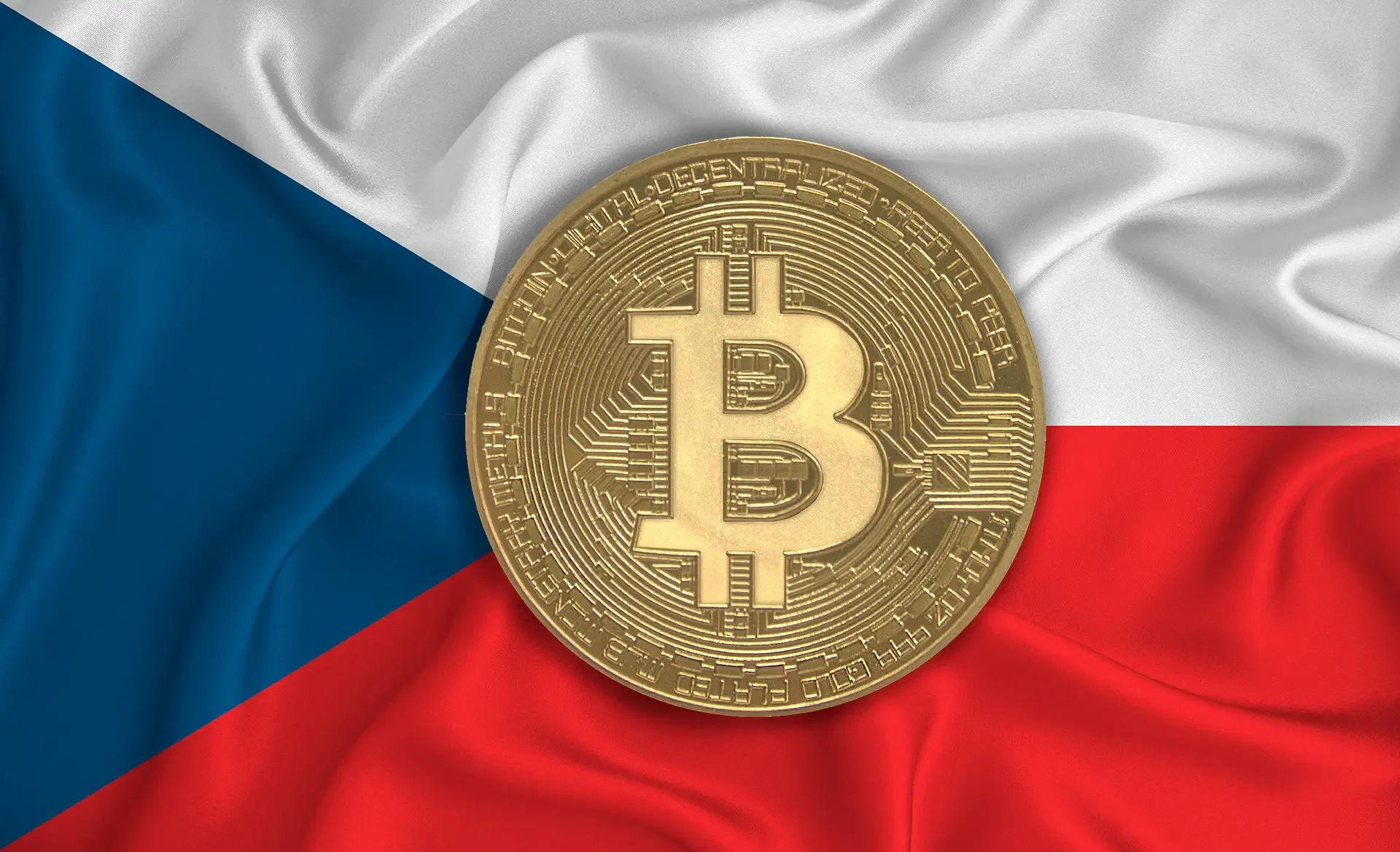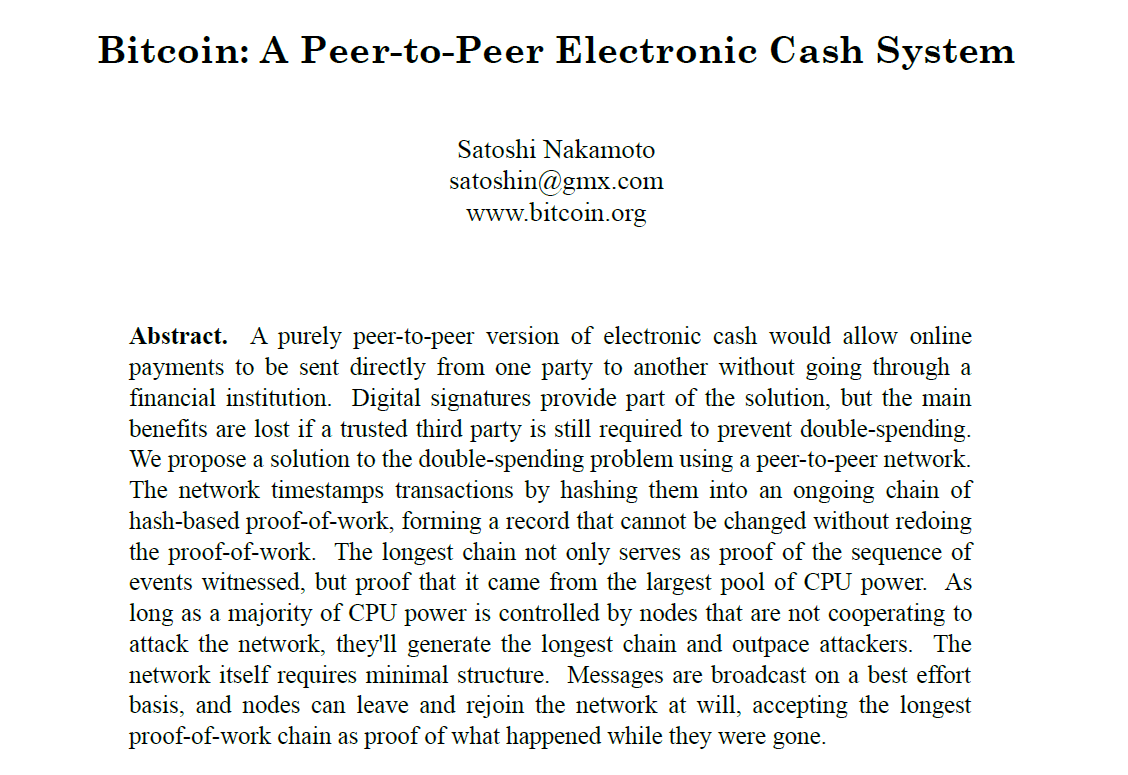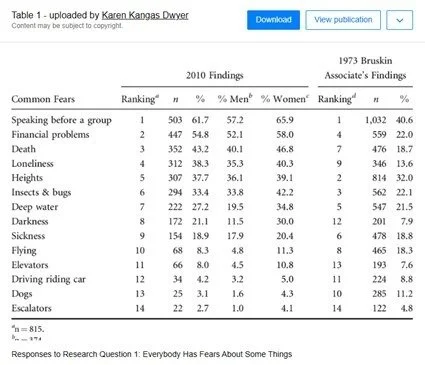Key to healing the financial system? Bitcoin doctors!
Over the past few months, we’ve been hearing everywhere about countries that want to invest in Bitcoin or add it to their reserves. Whether they will actually do so remains to be seen. What is not in question, however, is that this is not the only way Bitcoin can be adopted.
In fact, one could say that alternative methods of adoption - where the push doesn’t come from the top down, but rather from the bottom up - are actually better suited to Bitcoin. That’s partly because such approaches align more closely with Bitcoin’s values and characteristics. But how does this kind of adoption happen and who is making it happen?
Strategic Bitcoin Reserves - Great News from Around the World?
Bitcoin in the strategic reserves of various countries or central banks? Something that would have sounded like science fiction just a few years ago has, by 2025, become one of the most discussed topics in this sector. And it’s no wonder. This year, several countries have announced they are considering adding Bitcoin to their national reserves. Which countries are we talking about?
United States of America: An Official Strategy
On March 6, 2025, President Donald Trump signed an order to create strategic reserves that, among other things, should include Bitcoin. These reserves will be filled with bitcoins that were confiscated during criminal and civil proceedings. Instead of selling them, the government will hold them as long-term strategic assets. The goal is to strengthen the United States’ position as a leader in the field of digital assets - without burdening taxpayers.
Sweden: A Parliamentary Initiative
In Sweden, members of parliament Dennis Dioukarev and Rickard Nordin urged Finance Minister Elisabeth Svantesson to consider creating a national Bitcoin reserve. They propose that the country utilize confiscated cryptocurrencies to diversify its reserves alongside traditional assets like fiat currencies and gold - without requiring public spending.
Czech Republic: Debate Within the Central Bank
Czech National Bank Governor Aleš Michl proposed at the beginning of the year to invest up to 5% of the country’s foreign exchange reserves (approximately $7 billion) into Bitcoin as part of a diversification strategy. However, this proposal faces skepticism from members of the bank's board and the Ministry of Finance, who point to regulatory concerns and the volatility risk associated with Bitcoin.
When Looks Are Deceiving
At first glance, this might seem like great news. Adoption at the national level would imply that lawmakers might view Bitcoin more positively. It could lead to increased adoption through better tax laws, easier acceptance by entrepreneurs and merchants, or even the integration of Bitcoin into school curricula. On the surface, all this sounds like paradise. But looks can be deceiving.
The Bigger Problem
What’s a much bigger issue is that placing Bitcoin on the balance sheets of states or central banks is in direct contradiction to the ideology behind Bitcoin. Yes, it’s still true that perhaps one of the most important characteristics of Bitcoin (if not the most important) is that anyone can use it without needing permission. And that applies here as well.
However, the problem is that if central banks - or even entire states - decide to add Bitcoin to their balance sheets or strategic reserves, peer-to-peer use of Bitcoin could be threatened in the future, or at the very least, restricted.
If a majority of Bitcoin’s supply ends up being held by large players and entities who only keep it as a safety net in times of crisis - and do not actually use Bitcoin for payments - then the entire future trajectory of the largest cryptocurrency could deviate from its original intent.
And that original intent is very simply described in the abstract of the Bitcoin whitepaper:
If Bitcoin were to become too centralized in the hands of the largest players, it would be significantly harder for it to become a payment system that could not only be used anywhere in the world, but more importantly, serve the poorest and most underprivileged.
Among such groups are, for example, women in the Middle East, opponents of dictatorial regimes, or simply people who are not fortunate enough to live in a country with a developed financial system. Moreover, if we add to this mix countries with high inflation, frequent bankruptcies, or currency collapses, we would truly be limiting Bitcoin’s use to the “financial elite.”
Alex Gladstein explores why Bitcoin is crucial specifically for the less privileged and how it helps people around the world in his book Check Your Financial Privilege. You can see the preview for the book also in this video.
And it is precisely the examples from Alex’s book that clearly show the potential Bitcoin holds and how it can truly help change the world. However, for that to happen, Bitcoin needs to reach the masses. People must teach about it properly, to help with adoption and onboarding. And this is exactly where the “modern-day financial doctors” can help.
Who is a Bitcoin Doctor?
Every one of us has been to the doctor. And the vast majority of people go to the doctor when something is wrong - they have a toothache, arm pain, leg pain, anything. But the average person doesn’t really know what’s wrong. They just feel pain and understand that something isn’t right.
The doctor’s role is almost always clear: to identify the source of the pain and uncover the root of the patient’s problem. Then they must choose the most suitable treatment method, whether it's medication or some type of procedure. Once that’s done, it’s the doctor’s job to guide the patient through recovery until they are fully healed and recovered. Ideally, they should also recommend some form of prevention to avoid similar issues in the future.
But why are we talking about this in an article about Bitcoin adoption? Because traditional, well-trained and educated doctors - the ones we all know - have more in common with these so-called “Bitcoin doctors” than it might first seem.
A Bitcoin doctor (i.e., educator) has very similar tasks to a real doctor. Of course, they don't directly save human lives, but they can certainly contribute to improving them. When a “patient” (client) walks through their door, their task is to find out what kind of problems the person is facing.
Just like a regular doctor, a Bitcoin doctor must use questions, empathy, and their knowledge of the subject - in this case, Bitcoin and the financial system - to discover what is truly causing the “pain.” Once they identify the patient’s issue and fully understand its nature, they can begin diagnosing and helping.
However, they must be certain of what they’re dealing with - so they don’t prescribe something that won’t solve the problem. Just like no patient would be happy if they were given foot cream for a toothache, a person whose bank accounts have been frozen by a third party likely wouldn’t appreciate being advised to buy Bitcoin through a centralized exchange.
What Problems Might a Bitcoin Doctor Encounter in Europe?
Toothaches, back problems, broken arms, or persistent coughing - these are just a small percentage of reasons people visit doctors. And it’s understandable: if someone has a health issue, they go see a doctor.
But what kind of problems might a Bitcoin doctor encounter? As with regular doctors, the list is extensive. However, in Europe, people most often seek out a Bitcoin doctor not to solve a specific problem - but rather for prevention. What does that mean?
While in many countries around the world people suffer from issues like double-digit inflation, a broken banking system, or limited access to financial services, in most of the Europe these problems generally do not affect the average citizen. So one might reasonably ask: do Bitcoin doctors even have anything to do here?
A very interesting perspective on what kinds of problems a Bitcoin doctor might encounter in Europe can be found in this video.
Even though the problems of the current financial system mentioned earlier are not common in Europe, interest in Bitcoin still persists. The reasons why people in this part of the world want to invest in Bitcoin are mostly preventive or educational in nature.
Since Europeans are not forced to look for alternative or parallel financial systems, interest in Bitcoin likely stems primarily from curiosity. For example, a survey by the National Bank of Slovakia titled Cryptoassets and the Digital Euro found that in nearly 30% of cases, investors in crypto (not just Bitcoin) stated that their reason for purchasing these financial instruments was to gain a deeper understanding of them.
Source: nbs.sk
Similarly, almost 30% cited speculation, which in crypto is often accompanied by greed. But it is precisely from greed or the quick lure of easy or unrealistic profits that one of the biggest problems Bitcoin doctors in Europe face arises: scams.
High Cholesterol = High Guaranteed Returns
Eating too much fatty or fried food = high cholesterol. We all know this. We've heard it a million times. Yet many people still ignore it, refuse to change their lifestyle, and due to their own poor habits, end up with high cholesterol, which negatively impacts their health. They often go to the doctor when it’s already too late.
Unfortunately, Bitcoin doctors encounter a very similar scenario - except instead of high cholesterol, their “patients” fail to watch out for “high guaranteed returns,” “get-rich-quick schemes from the comfort of home,” or “surefire ways to make money.”
These are phrases often used in various fraudulent schemes that prey on people’s greed and lure large sums of money from their victims. Just like cholesterol affects physical health, these scams severely impact victims’ financial well-being. In many such cases, Bitcoin doctors are left with no choice but to conclude that the patient has fallen for a scam—and will most likely never see their money again.
And yet, these situations can often be easily avoided. While it may be nearly impossible to resist a freshly fried schnitzel with mayonnaise salad, doing a quick background check on a project one plans to invest in is remarkably easy.
It’s enough to:
Visit the project’s website,
Look up information about the founders,
Check whether they are actually building products with real use cases.
Likewise, one should verify that the project doesn’t display classic red flags like:
Intense emotional pressure,
Recruiting new people “into the structure,” or
Words like “guaranteed return,” “certain profit,” or “passive income.”
Before investing in Bitcoin, investors should consider whether:
Source: nbs.sk
If you're unsure whether something might be a scam or not, there are several ways to protect yourself before investing in such a project. In case of any doubts, you should verify it with Bitcoin doctors before it’s too late.
Often, all it takes is a simple message - such as to us at AmityAge - to prevent a situation where a message like "Hi, is this project a scam?" becomes "Hi, can you help me? I think I lost money in a scam." two weeks later.
Bitcoin Educators Academy - A Place Where Anyone Can Become a Bitcoin Doctor
Just like in healthcare, prevention can help promote a healthier Bitcoin lifestyle. Just as traditional doctors usually recommend enough physical activity or a balanced diet, Bitcoin doctors should clearly explain to their clients how they can improve their financial lifestyle with Bitcoin.
Instead of salad and jogging, a Bitcoin doctor should recommend preventive practices such as:
Non-KYC purchases (buying without verification), e.g. via the Vexl app,
Self-custody and a use of a personal hardware wallet, like Trezor,
Generating a new address for each transaction instead of reusing the same one.
Of course, this depends on the client’s experience and the direction the Bitcoin doctor wants to guide them.
This is where another parallel between medical doctors and Bitcoin doctors appears. Setting the right lifestyle for a patient is not easy - we are all unique individuals. For one person, a vegetarian diet combined with four one-hour walks per week may work best. For another, a carnivore diet and playing football with friends three times a week might be more suitable.
And this is exactly where the experience of the Bitcoin doctor needs to shine - to achieve orange-pilling. Let’s pause for a moment on what orange-pilling actually is. And there’s a simple reason for this: the word orange-pill (or to orange-pill someone) is very abstract, just like it’s somewhat abstract to say whether someone truly has a healthy lifestyle.
For one Bitcoin doctor, orange-pilling might mean helping a friend download the Blink wallet.
For another, it might mean that the person regularly “stacks sats” (buys small amounts of bitcoin) into a hardware wallet without using KYC services. Yet another Bitcoin doctor might see orange-pilling as helping someone run their own Bitcoin node.
Onboarding Using the Blink Wallet
The definition of a “proper onboarding” (often referred to in the Bitcoin world as orange-pilling) is highly debatable. Still, most would agree that as part of onboarding, the Bitcoin doctor should aim not only to introduce the patient to some ideas or concepts about Bitcoin, but perhaps also help them set up a wallet.
A very simple wallet to set up, which offers a wide range of features, is the Blink wallet, mentioned earlier. First and foremost, it should be noted that Blink is a custodial wallet, meaning you don’t control the keys - they are held by a third party, in this case, the company that develops Blink. For this reason, it’s not recommended to store large amounts of money on Blink - or on any wallet that primarily uses the Lightning Network.
In addition to the standard ability to send and receive bitcoin via the Lightning Network, Blink also offers a map of businesses that accept Bitcoin via Blink. These businesses can even be supported remotely through the app. Blink also serves as an excellent entry point for merchants who want to start accepting Bitcoin, thanks to its built-in point-of-sale (POS) terminal functionality.
Even when choosing a wallet, the most important thing is that the Bitcoin doctor must prioritize the patient’s well-being. Just as a doctor wouldn’t recommend someone who just ran their first kilometer yesterday to run a marathon next week, a Bitcoin doctor shouldn’t suggest that a newcomer manage their own Lightning node right away. It’s in how the Bitcoin doctor treats their patients and helps them that the skill, experience, and knowledge of the Bitcoin doctor become evident. But how can aspiring Bitcoin doctors develop this kind of knowledge?
Bitcoin Educators Academy - A Place Where Anyone Can Become a Bitcoin Doctor
Amityage is often associated only with Bitcoin mining. And rightly so. AmityAge mines Bitcoin for its clients in places like Paraguay and Ethiopia, and has already helped them mine over 100 bitcoins.
But AmityAge is also connected to education, primarily through its project Bitcoin Educators Academy (BEA). The goal of this three-day academy - which has been held 11 times in 10 different countries - is to help people who want to fully dedicate themselves to Bitcoin education, equipping them with the right skills and knowledge to onboard anyone.
And it's not just about technical Bitcoin knowledge - quite the opposite.
Fear of Public Speaking
According to a 2012 study, people fear public speaking more than death. It’s one of the most common fears among the general population. However, when onboarding or orange-pilling, there may occasionally be situations where it’s necessary to speak in front of a larger group - whether it’s during a workshop, lecture, or panel discussion.
Most common things people are afraid of
Source: researchgate.net
Public speaking, handling objections, and creating an inspiring speech - these are just some of the main themes and lessons every participant of the Bitcoin Educators Academy (BEA) goes through. The aim of these sessions is not only to expand one's horizons and experience, but also to learn how to communicate effectively. Whether it's to an individual or a larger audience, participants receive feedback on both their content and delivery. And thanks to this, they can become better Bitcoin doctors.
A keen reader might now think that BEA sounds more like a self-development course than a Bitcoin academy - but the opposite is true. In addition to public speaking skills, participants also learn how to explain complex Bitcoin concepts - not just accurately, but simply and effectively.
What does a Bitcoin wallet have in common with a keychain? Does Bitcoin have an intrinsic value? What actually is an intrinsic value? These topics, analogies, myths, and many other crucial questions and themes are covered during BEA. Thanks to lessons focused on communicating Bitcoin clearly, BEA is also suitable for marketers or social media managers working in Bitcoin companies.
Participants also learn how to handle objections - not just Bitcoin-related ones. Many BEA graduates rate the objection-handling lesson as the most interesting and practically useful for everyday life. So what should you do when someone disagrees with you? That - and much more - you can learn at our next BEA.
How Can Bitcoin Doctors Help With Business Onboarding?
It’s also worth noting that the BEA organizational team helps promote Bitcoin adoption wherever the academy takes place. For example, during BEA in the Italian city of Como, the hotel manager where the event was held downloaded a Bitcoin wallet and received his first satoshis. From that BEA onward, it became possible to pay with Bitcoin at Cascina Mirandola, a charming and authentic Italian hotel.
Another BEA in Turin, Italy was just as successful - this time, AmityAge onboarded a taxi driver into Bitcoin. The conversation with him began rather awkwardly, when he remarked:
“You teach Bitcoin? So you're just scamming people.”
Yet, just a few minutes later - after successfully handling several objections, using analogies, and debunking common myths - he was downloading a wallet and asking for resources where he could learn more about Bitcoin.
When onboarding businesses or entrepreneurs into Bitcoin, we’ve confirmed multiple times that too much effort or pressure leads nowhere. Bitcoin doctors may have the best and most noble intentions, but if the client/patient doesn’t want to listen or accept advice, any attempts to persuade them will lead to nothing. That’s why, when it comes to onboarding, there’s no need to force it.
This kind of “tactic” often proves especially effective when onboarding shops or businesses. Bitcoiners typically try hard to market all the possible advantages of Bitcoin and explain why a given manager or business owner should accept it. But that may not be the best onboarding strategy.
Often, it’s enough to simply ask whether Bitcoin is accepted at the business - or whether the owner might be interested. These simple, subtle questions have frequently led us to interesting discussions with bartenders, waiters, or taxi drivers. And more than once, that single question led to someone downloading a wallet and receiving their first satoshis.
That’s exactly how we managed to onboard this great coworking space in Bergamo into Bitcoin. The owner of the place knew absolutely nothing about Bitcoin, but after a friendly and humorous conversation - without any pressure or heavy marketing - he decided to download the Blink wallet and accepted his first satoshis from us as payment for drinks and coworking access.
Tipping in Bitcoin
But what if you’re not lucky enough to be speaking with the owner or manager of a business?
Of course, that happens all the time. And sometimes it’s clear that waiters or staff might be open to the idea of accepting Bitcoin, but they don’t have the authority to make that decision. Even this situation has a relatively simple and elegant solution.
Just offer to tip them in Bitcoin. If they’re genuinely interested, you can help them download a wallet and send the tip directly to them. The upside is that someone inside the business now potentially starts learning about Bitcoin - and might bring the idea of accepting it to their boss, thereby helping to onboard the entire business.
Again, there's no need to overcomplicate it. Often, all it takes is saying:
“I’d like to leave a tip, but I only tip in Bitcoin.”
If the other person shows interest, you have a unique onboarding opportunity. And if they don’t, then any effort to persuade them is pointless.
Do You Want to Become a Bitcoin Doctor Too?
Since the launch of this project in January 2024, more than 100 aspiring and motivated educators have graduated from Bitcoin Educators Academy (BEA). BEA has taken place not only in Slovakia and the Czech Republic, but also in Hungary, Italy, Germany, and Switzerland. It has even been held twice outside of Europe - specifically in El Salvador and on the island of Roatán (Honduras). And soon, Asia will join.
If you too want to learn how to communicate about Bitcoin simply and effectively, don’t hesitate to join our Telegram group and choose from the list of upcoming BEA events held worldwide.
Bitcoin adoption won’t happen overnight. Not in a week, a month, or even several months.
We can already say that global Bitcoin adoption is a process that has taken - and will continue to take - years. And while we’re on the right track, it’s educators - Bitcoin doctors - who can accelerate and improve adoption by helping newcomers solve their problems.
Your first step to becoming a Bitcoin doctor starts here.







